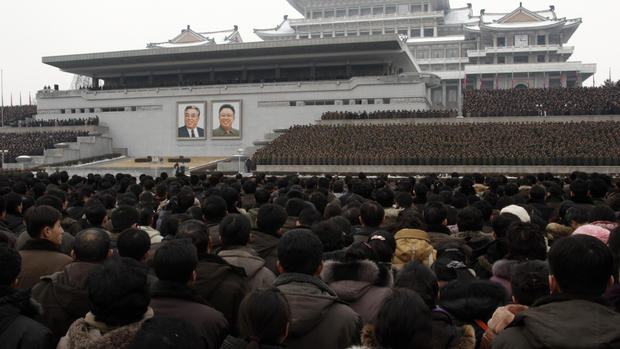North Korean satellite may already be dead
North Koreans honored their former leader, Kim Jong Il, on the one year anniversary of his death Monday. The mood of the totalitarian nation was uplifted, in part because of the successful rocket launch last week that sent a North Korean satellite into orbit. However, new reports suggest that the satellite -- named in honor of Kim -- is spiraling out of control and may already be dead.
"It's tumbling and we haven't picked up any transmission," Harvard astronomer Jonathan McDowell told the New York Times. "Those two things are most consistent with the satellite being entirely inactive at this point."
No reports have surfaced from North Korea concerning the state of the satellite. However, as the nation mourns their former leader, several prominent North Korean officials have pointed to the successful rocket launch as a major achievement for the country.
Speaking outside the mausoleum dedicated to Kim, the military's top political officer, Choe Ryong Hae, said North Korea should be proud of the satellite, calling it "a political event with great significance in the history of Korea and humanity."
Speaking with the Times, Dr. McDowell said that optical telescopes have spotted the satellite brightening and dimming as the washing machine-sized spacecraft tumbled end over end. Additionally, radio astronomers have picked up no signals from the satellite.
However, the lifespan of the satellite may be a secondary concern to North Korea, with the success of the rocket launch itself a much higher priority. The United States and other nations viewed last week's launch as a thinly disguised cover for testing missile technology that could someday be used for a nuclear warhead.
The U.N. Security Council, which has punished North Korea repeatedly for developing its nuclear program, condemned North Korea's action and said it will urgently consider "an appropriate response." The White House called the launch a "highly provocative act that threatens regional security," and even the North's most important ally, China, expressed regret.
The scientists in charge of North Korea's rocket program were invited by Kim's son, Kim Jong Un, to attend the mourning service in Pyongyang, in a symbol of how highly North Korea valued the successful launch.
